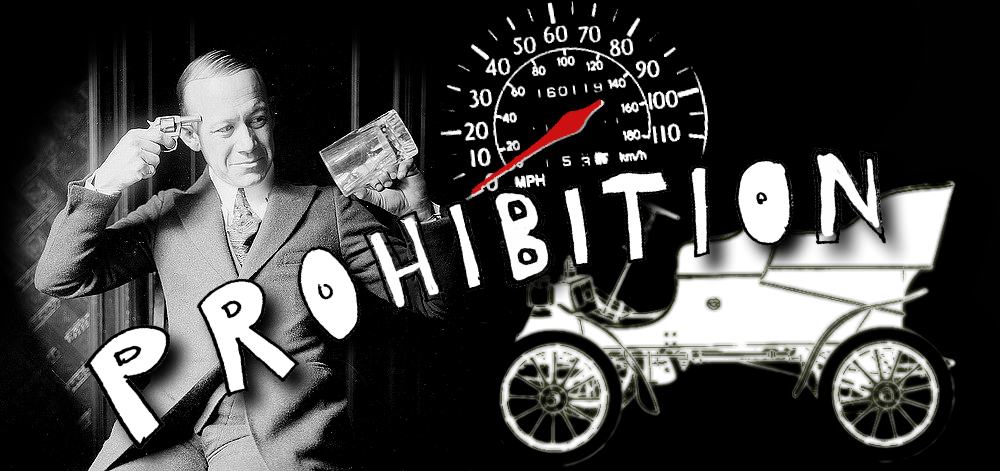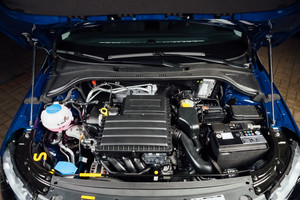Henry Ford's 'Fuel of the Future' was Ethanol, But We Still Use Gasoline?
By on Jun 22 2016

Spend a single summer afternoon on the boardwalk in Atlantic City and you might soon understand the motives behind the once-unfathomable decision by U.S. Congress to outlaw alcoholic beverages in 1919.
The Eighteenth Amendment to the United States Constitution a widespread ban on alcoholic beverages, or Prohibition seemed to do little to stop the American fascination with good drink. While always extremely relevant, Ethanol has never received the proper respect it deserves.
Alcohol is a fundamental part of our identity as Americans: whether we like it or not. For decades, it has fueled our modern culture and for the past few years, our automobiles (in part).
Consumable alcoholic beverages are comprised of a percentage of ethanol alcohol the same component found in modern gasoline blends. As such, in spite of the many household and workshop uses for pure ethanol alcohol, it along with the many whiskies, wines, beers, and brandies was taken off of store shelves and deemed unfit for human consumption in any form during Prohibition.
However, before then, ethanol had quite a history in the United States. Believed to be the "fuel of the future" by Henry Ford, ethanol and similar biofuels were actually considered preferential for use in the Ford Model T.
The world's first affordable automobile, the Ford Model T, could run on PURE Ethanol?

It is alleged that the earliest models of the Ford Model T were built to run on gasoline and kerosene as well as ethanol: but neither option was considered the premium or preferable fuel source due to cost. In fact, ethanol was added in the early 20s to increase octane and reduce engine knocking so while advocates of pure gasoline argue for pure, alcohol-free fuels, the oxygenated blends have been proven to increase performance in most engines.
The gasoline-fueled infrastructure in place today, in our modern world, may not have been if it weren't for the sobering laws of the early 1920s. By the mid-1930s (once Prohibition had come to an end under the direction of FDR), gasoline had become the main source of fuels for automobile engines, and even the optimistic Henry Ford had altered his Model A to better gel with the industry's new alignment; and until fairly recently, the thought of eventually replacing gasoline with biofuels remained all-but-absent from the minds of Americans for decades.
Today, corn-based ethanol is cheaper per gallon than gasoline and burns cleaner.
As of June 2016, it seems that the world at large has at least caught on somewhat to the marked benefits of bio-based fuels; Eduardo Porter of the New York Times writes:
"While biofuels account for only about 2.5 percent today, the European Union expects renewable energy mostly biofuels to account for 10 percent of its transportation fuel by 2020. In the United States, the biofuel goal is about 12 percent by early in the next decade. The International Energy Agency envisions using biofuels to supply as much of 27 percent of the world's transportation needs by midcentury."
2022 update, courtesy of energy.ec.europa.eu:
"By 2030, the EU aims to increase the share of renewable energy in transport to at least 14%, including a minimum share of 3.5% of advanced biofuels. EU countries are required to set out an obligation on fuel suppliers that ensures the achievement of this target."
Furthermore, the blend wall, which for years has dictated how much ethanol can be present in a final gasoline product, has (as recently as May 2016) been broken via an added 700 million gallons of ethanol to the US fuel supply.
But, surprise: not everyone is excited about the recent strides toward the increased usage of ethanol and other biofuels in gasoline blends. Jazz Shaw of hotair.com writes:
"While the rest of the nation is enjoying the lowest gas prices in a decade for regular, we're shelling out more than three bucks a gallon for the good stuff just to operate our small engine gear and avoid dumping corn oil into the mix ...The EPA's ethanol mandate is bad news all the way around and it's less sensible than ever now that America is a global leader in energy production. At this point it's simply a relic of politics designed to keep a small but influential special interest group happy.
Yikes. Shaw continues:
"I just bought a new chainsaw this spring and the good folks at Home Depot spent a fair bit of time going over ...precautions with me ...they were quick to warn me that I needed to go out and purchase ethanol free gas if I wanted to get more than one season out of this ...expensive addition to my tool shed. I'm used to it because we already travel several extra miles to fill up my five gallon jerry can for my lawnmower.
Advocates of Shaw's point-of-view might also argue the decreased performance characteristics and decreased efficiency of ethanol fuel.
Whatever the solution may be, ethanol, for many years to come, will likely remain at the top of the list of natural resources we deem necessary to maintaining and evolving in the realms of transportation and manufacturing.
As our machinery and vehicles adapt and change along with our society, so too must our approaches to harnessing and implementing energy resources.






